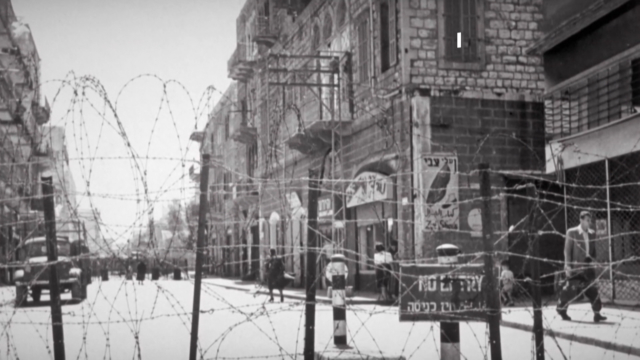To the outside world, the Israeli-Palestinian conflict seems like a severe reality of incessant violence and turmoil. But Brazilian filmmaker, Julia Bacha, is dissatisfied with the media’s general, and seemingly limited, portrayal of the conflict.
Bacha aims to show the world a different reality – the efforts that both Israeli and Palestinian civilians are making to find solutions through non-violent forms of resistance.

Filmmaker Julia Bacha shows solutions in Israeli-Palestinian conflict
Filmmaker Julia Bacha, is dissatisfied with the media’s general, and seemingly limited, portrayal of the conflict. She aims to show the world a different reality, the efforts that both Israeli and Palestinian civilians are making to find solutions through non-violent forms of resistance.“Correspondents are sort of constantly trying to respond to what’s considered ‘breaking news,’ which generally tends to be focused on violent events. The non-violent, civil disobedience efforts are less glamorous and harder to capture,” Bacha said. “I think there’s also an ongoing tendency to try to narrate the conflict as one simply between Israeli versus Palestinians and they are treated as if they are equal-warring parties. And when we really focus on very simplistic narratives of what Israelis are and what Palestinians are, we really do a disservice to the possibility of looking creatively at solutions that are happening underground, but are just not being reported on.”
Bacha’s documentary Budrus and documentary-short My Neighborhood depict the significant presence of non-violence in areas of hard Israeli-Palestinian conflict.
She believes that the media, often unintentionally, reinforces stereotypes that are unconstructive for members on both sides of the Israeli-Palestinian conflict, which she aims to challenge through her films.
“When we don’t actually show role models of people who are understanding how their futures are dependent on each other and are acting and thinking creatively and constructively saying ‘how can we resist together, how can we build a future that actually is rights respecting, that is freedom for all, where there is true equality?’ And then we start breaking down some of these stereotypical images and looking at the people on the ground as full, complete human beings that have fears, that have hopes, that have ideas, and that have creative actions. And not simply as bystanders of a movement led by leaders that are completely taking both of their societies down a path of further and further destruction,” Bacha said.
Bacha’s films have not only helped to show the world an important, and largely unseen, aspect of the conflict-driven zones, but they have also distinguished her as an internationally celebrated filmmaker and Peabody Award recipient.
But Bacha’s work is not limited to the big-screen.
She is also the Creative Director of the non-profit organization Just Vision, which, much like her films, aims to change the Israeli-Palestinian narrative by raising awareness about non-violent resistance movements.
Julia Bacha joined Full Frame to talk about her inspiration and efforts to tackle a crucial reality that is missing in the mainstream media and why she believes it is imperative to change the narrative of the Israeli-Palestinian conflict.
Follow Julia Bacha on Twitter: @JuliaBacha
 CGTN America
CGTN America
